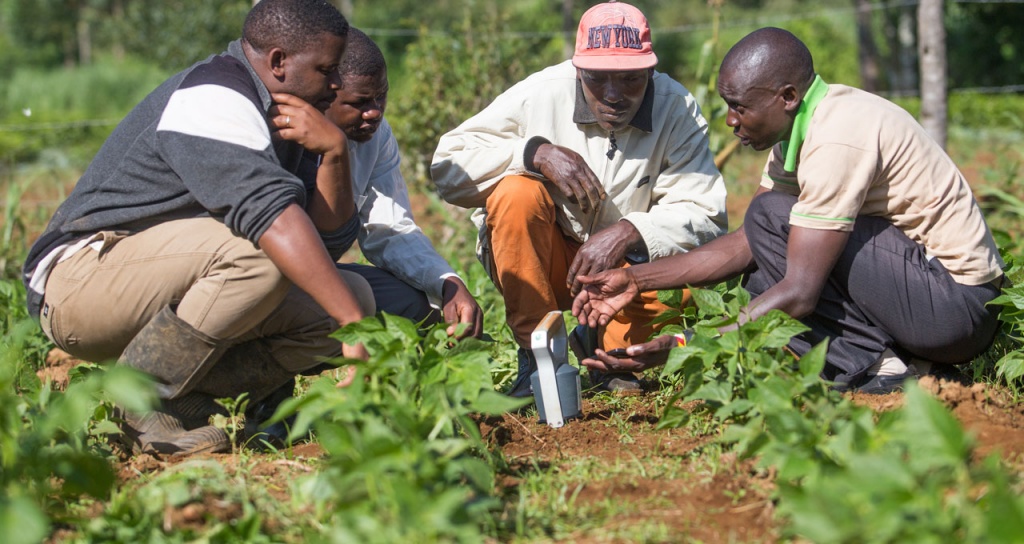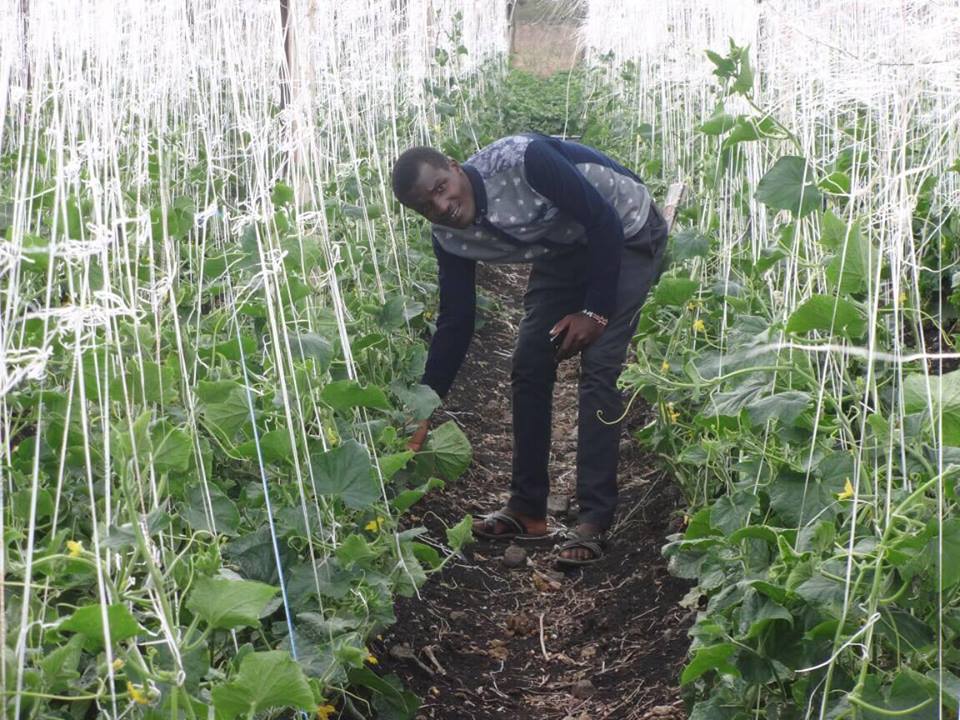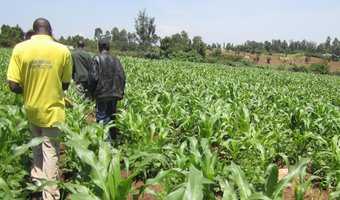
Soil Cares expert explaining to farmers how soil testing scanner works. The soil testing equipment including scanners use infrared and Xray technology and provides results within 10 minutes.
Stationary soil testing laboratories, mobile laboratories and scanners by SoilCares Limited has enabled over 7, 000 farmers in not less than 13 locations in Kenya improve their crop and dairy farming productions since 2013 when the company started its operations in the country.
Working with the national and county governments, farmer groups, individual farmers and organisations, SoilCares apart from testing soil for farmers has managed to conduct 72 trainings for the farmers on how and why soil testing is key in farming.
“Currently we have over 25 successful stories of farmers sampled from across 13 locations in the country who practice horticulture farming, commercial and food crops production and dairy farming,” said Jacob Gathuru, SoilCares sales representative, Central Kenya during Central Kenya ASK show in Nyeri.
Related News: Vetiver grass—most cost-efficient soil erosion control doubles crop yield
Related News: Soya growing breaths life into dying Mumias soils
According to Gathuru, farmers currently have no need to collect and send soil samples to their laboratories then wait for days or even weeks for results, SoilCares scanners for example which are used in the fields provides farmers with real-time soil testing results, lime and fertilizer recommendations at a fee.
“All our soil testing equipment including scanners use infrared and Xray technology and within ten minutes our scanners are able to give the farmer soil fertility reports,” said Gathuru.
Fred Onyango is a maize farmer for ten years on his three acres plot in Homa Bay County and a beneficiary of SoilCares products. After sometime he realised his maize yields started reducing and however much he applied synthetic fertilisers, there was no change till he met SoilCares.
“Since I tested my soil with SoilCares I have seen faster, healthier and up yields from three to eight bags of maize every season,” Said Onyango.
Sylvia Gakiiru has been a dairy farmer for 16 years in Meru County. Her fodder and food crops had started turning yellow whenever he planted them. After soil testing with SoilCares and applying the recommended inputs Gakiiru says her crops are thriving enabling her feed well her family and dairy cows.
Related News: Basic ways to improve soil fertility & health
Related News: Funguses helping farmers fight soil borne diseases
Nakuru County farmer Stephen Karanja who has grown potato for ten years but just harvesting between 15 and 20 bags of potatoes each season. Soil samples from his piece of land taken to SoilCares and tested indicated his soil lacked nitrogen and potassium. NPK 17:0:21 was recommended which he applied and the result is that Karanja is now harvesting 50 bags of potatoes from the same piece of land.
I am extremely delighted by to have potato production increased courtesy of SoilCares’ soil testing services which I can now seek whenever I notice something wrong with my crops affecting production,” said Karanja.
Write comment (0 Comments)
















